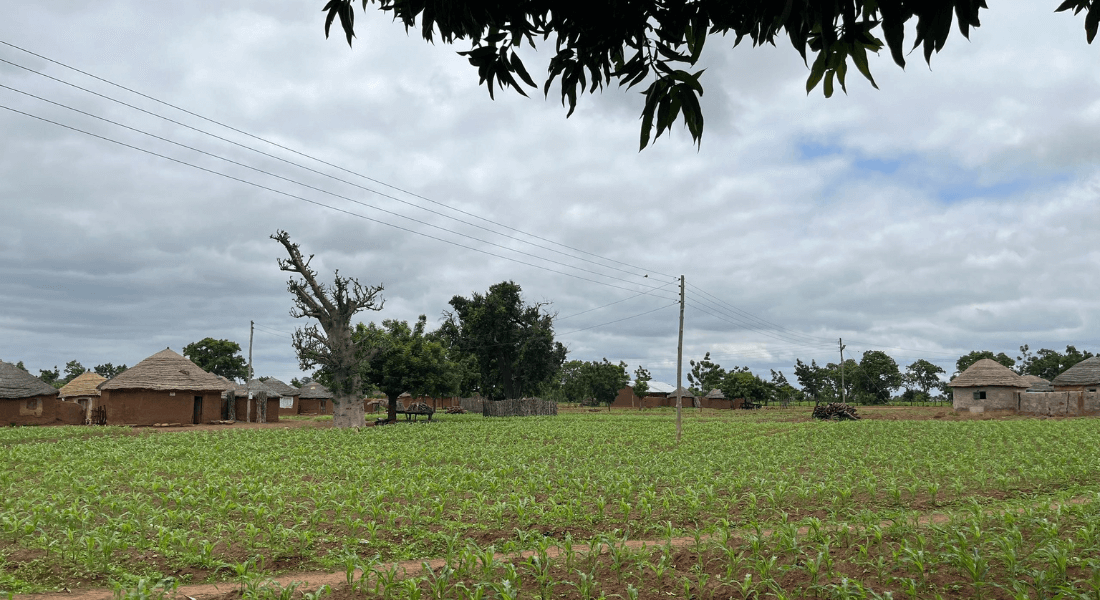Master Thesis Presentation: Rafiatu Abdul Rauf
Rafiatu Abdul Rauf, CERTIZENS member and recent master's graduate at the Department of Political Science, University of Ghana, presents her thesis on 'Understanding the Gendered Experiences of the Use and Control of the Ghana Card in Kumbuyili in the Sagnerigu District in the Northern Region, Ghana'.

Understanding the Gendered Experiences of the Use and Control of the Ghana Card in Kumbuyili in the Sagnerigu District in the Northern Region, Ghana
What is your research question and where and how did you go about doing your research?
The primary research question of the study was "How do cultural norms and traditions regarding gender roles influence women's citizenship, the use, and control of the Ghana Card?"
The study was conducted in Kumbuyili, a community in the Sagnerigu District of the Northern Region of Ghana. Previously, I have worked extensively with different groups of people from different trades, age and gender groups in the community. In earlier engagements I observed that the women in the community encounter deplorable livelihoods and other challenges related to poverty where, among other things, they lamented how the patriarchal system does not favor women and young girls’ development. Additionally, the community does not have a registration center for any of the national IDs. These conditions, coupled with my familiarity with the people and access to the community, is what prompted me to conduct the study in said community.
I used a qualitative approach during my fieldwork because it enabled me to gain a nuanced understanding of the thoughts, feelings and experiences of the study participants. I interviewed men and women living in the Kumbuyili community over a period of two and a half months and got to learn a lot about the unintentional effects and impacts that digitalization of identity documents has had on people who live in rural areas. In addition, I learned how patriarchy, polygamy and household dynamics have a direct influence on the use and control of ID documents and how this affects the way women perceive their citizenship status.
What were your key findings and why do they matter?
The study found that within this particular community, cultural norms were highly significant in shaping women’s relationships to IDs. For example, women cannot own property, or make any purchases or decisions without their husbands’ permission. Similarly, men and boys were responsible of taking care of everyone in the household. In Kumbuyili, patriarchal structures are deeply rooted, positioning men as primary decision-makers and custodians of important documents such as Lampo cards - old tax cards, health insurance cards, and birth certificates, as well as the more recent Ghana Card. This limits women's autonomy and their ability to use the Ghana Card independently for financial, civic, and other formal transactions, or even for accessing basic government services.
The study also uncovered that women continue to face significant logistical and economic challenges in accessing the Ghana Card. Long distances to registration centers, limited access to transportation, and the cost of travel make it difficult for women to prioritize registration. Domestic responsibilities further limit their availability to spend time at registration centres.
Many women are unaware of the full range of benefits of the Ghana Card beyond proof of citizenship. Information about the card is communicated in settings that are less accessible to them. Low literacy levels among rural women exacerbates this knowledge gap, leaving many unaware of the Card’s potential to facilitate their access to financial and civic opportunities.
Why is your research relevant for the broader discussion on IDs and citizenship in Africa?
The research underscores the gender-specific barriers that women face in accessing and controlling their identification documents. This is crucial for understanding how patriarchal norms and cultural practices can and do limit women's autonomy in relation to IDs in addition to other spheres such as participation in civic and economic life.
The research also highlights how limited access to IDs can restrict women's ability to access financial services, social programmes, and government services. This is relevant for broader discussions on how to leverage national ID systems to promote inclusive development and reduce poverty in Africa.
This research is relevant for the broader discussion on IDs and citizenship in Africa in that it highlights the gendered dimensions of access to formal identification. To promote economic and social inclusion, it is necessary to address structural barriers which include limited access to IDs. This study offers lessons for other countries and contributes to academic and policy debates. By focusing on the experiences of women in Kumbuyili, the study provides a nuanced and detailed understanding of the challenges and opportunities associated with national ID systems in one particular case in Africa but which can be instructive more widely.
To access the full thesis, please contact the author via rafiatugandi@gmail.com.
